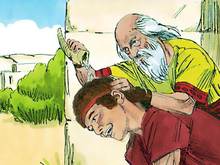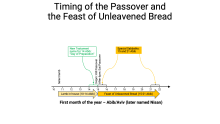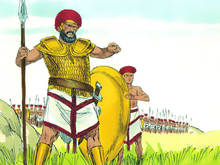Harmony of Bible records of David’s life
By Mark Morgan | David , Harmonies

Bible records of David’s life
David, the son of Jesse, was born in Bethlehem into a poor family from the tribe of Judah. Working first as a shepherd, he soon became known for his faith and courage, as well as his musical and poetic ability. Chosen by God as a future king and anointed by the prophet Samuel, he became the target of King Saul’s hatred and jealousy. Yet God kept David safe and Saul was finally killed in battle.
King David initially ruled over Judah for seven years and six months before being made king over the 12 tribes that had entered “the Promised Land” – the land still called Israel today, although at that time it included extra areas promised to Abraham but now claimed by the Palestinians and Jordan.
Parallel records from Samuel/Kings and Chronicles
(Harmony last revised 5 February 2026)
The Bible passages which record events in the times around the life of David are:
- 1 Samuel 16:1 to 1 Kings 2:46. Text included in left column.
- 1 Chronicles 10:1 to 29:30. Text included in centre column.
- 1 Chronicles 2:13-17 (Jesse’s sons). Parallel passage with 1 Samuel 16:6-13. Text included in centre column.
- 1 Chronicles 3:1-4 (David’s sons born in Hebron). Parallel passage with 2 Samuel 3:1-5. Text included in centre column.
- 1 Chronicles 3:5-9 (David’s sons born in Jerusalem). Parallel passage with 2 Samuel 5:14-16 and 1 Chronicles 14:4-7. Text included in right column.
- 1 Kings 11:14-18 (Joab’s killing of Edomites). Closely associated passage with 2 Samuel 8:13-14, 1 Chronicles 18:12-13 and the heading of Psalm 60











